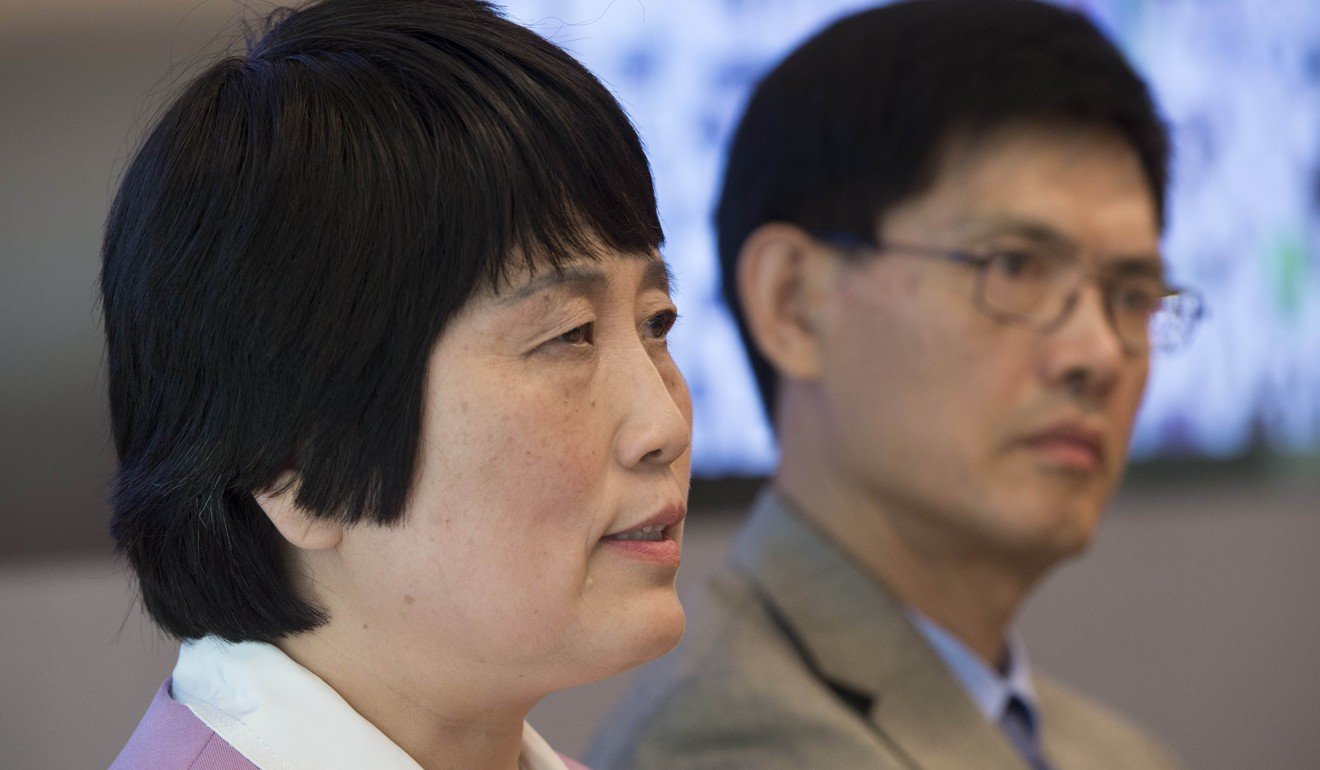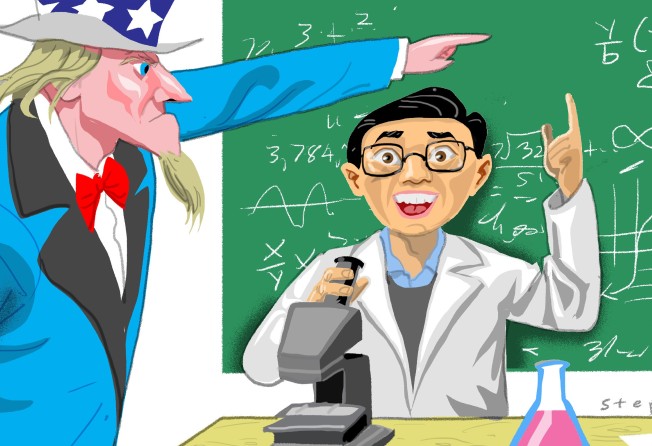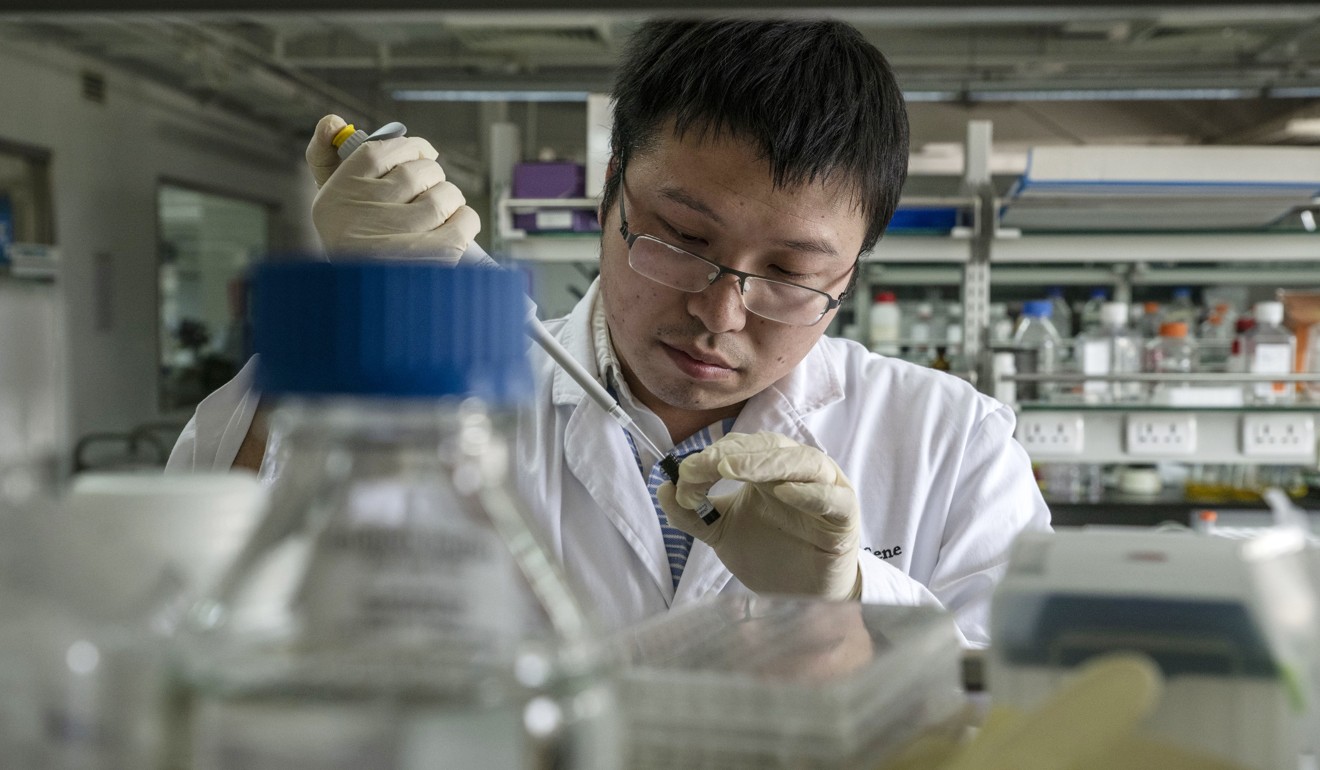
How China is winning the war with the US for scientific hearts and minds
Anson Au says the Trump administration’s anti-Chinese and anti-science biases are producing policies and a working environment that are pushing away talent in research and development, and it is China that will benefit

Xenophobia and racial discrimination have taken centre stage in the US amid a whirlwind of political decisions made by the Trump administration. And, as trade tensions between China and the US escalate, a proxy war of sorts between the two contesting rivals is already being fought elsewhere: in academia.
Citing fears of “intellectual property theft”, US authorities have announced plans to limit Chinese graduate students in certain fields to one-year visas. In the past, five-year visas could be obtained that would typically cover the time taken to earn a PhD; a one-year visa, by contrast, is hardly enough even for a master’s degree.
But this is nothing new. In fact, it only highlights the long-standing problem of discrimination against Asians in academia.
In a recent social experiment, professors in Germany were sent hundreds of identical requests for doctoral supervision from Chinese-sounding names purporting to be from several universities, including Pennsylvania State University and the National University of Singapore. US-based candidates were three times as likely to receive additional information in responses, and twice as likely to be given a warm, excited response or addressed by their first name.
In the US, this discrimination has taken on political overtones.
Earlier this year, it was reported that the White House had begun discussing measures to actively bar Chinese people from being a part of “sensitive” research at American institutions over fears of leaking intellectual secrets. More than discrimination, US-based Chinese academics have also been the target of claims of espionage.

In 2015, the case of esteemed physicist Xi Xiaoxing at Temple University went viral in academic circles for how he was forcibly arrested at gunpoint on suspicion of providing sensitive technology to China. The charges were later dismissed by US prosecutors, but no compensation was offered for the irreparable damage done to his reputation, or for the legal costs he incurred in the process.
Around the same time, government hydrologist Sherry Chen was also accused of leaking information to Chinese authorities. Despite the charges being dropped, Chen still doesn’t have her job back three years later.
Anti-Chinese discrimination will harm US innovation, on which America’s scientific enterprise relies, and hasten China’s own development in science and technology, pushing it to leapfrog America sooner. Here’s how.
First, the vast majority of American academia is staffed by foreigners. A recent report from the National Foundation for American Policy, a non-profit organisation that studies trade and immigration issues, found that between 50 per cent and 80 per cent of students in STEM fields (science, technology, engineering and mathematics) at the graduate level in America are foreigners. This means a critical part of the financial as well as intellectual capital for American universities depends on foreigners.
Notably, Chinese comprise the largest group of foreign students in the US.
Watch: US physicist Michio Kaku on American science’s ‘secret weapons’
The high foreigner-local ratio echoes what US physicist Michio Kaku has argued for years about American science education: it regularly performs at the level of Third World countries and “has the worst education system known to science”. In his view, without immigrants coming to America for education and research, the US scientific establishment and tech economy would collapse, and we could “forget about Google. Forget about Silicon Valley. There would be no Silicon Valley”.
If foreigners feel unwelcome in the US, they will take their intellectual capital elsewhere.
In recent years, a growing number of Chinese students have become “sea turtles”, people who return home after studying abroad. Where graduates were more likely to stay in America for post-graduate studies five years ago, many are now choosing to go home. Some Chinese graduates have even turned down lucrative, “American-dream” careers on Wall Street or Silicon Valley, opting instead for careers in prominent Chinese cities like Shenzhen, Shanghai and Beijing.
Even tenured scientists in the US are going back to China as the Chinese government dedicates itself to funding scientific research, as part of its attempt to spur domestic innovation.
And Chinese researchers are making serious advances. Just last year, quantum physicist Pan Jianwei and his team at the University of Science and Technology in Hefei made headlines by setting a world record in quantum teleportation, or the sending of quantum information from one place to another, paving the way for the development of unbreakable quantum communication networks.
This and others results affirm predictions that Chinese investment in research and development will surpass the US as the world’s largest investor as early as next year.

Meanwhile, the US is shooting itself in the foot not just by turning away talent; the government is also cutting funding for many science programmes, including those at the Department of Health and Human Sciences. Perhaps this is unsurprising, given President Donald Trump’s disdain for scientific facts like climate change.
Scientists are leaving for other countries, seeking to continue their work away from the looming shadow of the Trump administration’s anti-science agenda. We only need recall how France successfully lured 13 US climate scientists to Paris to carry out their research in 2017 to realise how bleak the picture is becoming in the US.
China is now picking up where the US left off. Its robust science programme that is now generating unprecedented results is in sharp contrast to the budget cuts and systemic racial discrimination in the US. In short, China has proved itself the place to go to for science, and the US, the place to leave.
Anson Au is a scholar and writer whose work covers culture, health, and politics. He is currently a visiting scholar at the Seoul National University Asia Centre and at Yonsei University, as well as a PhD student in sociology at the University of Toronto